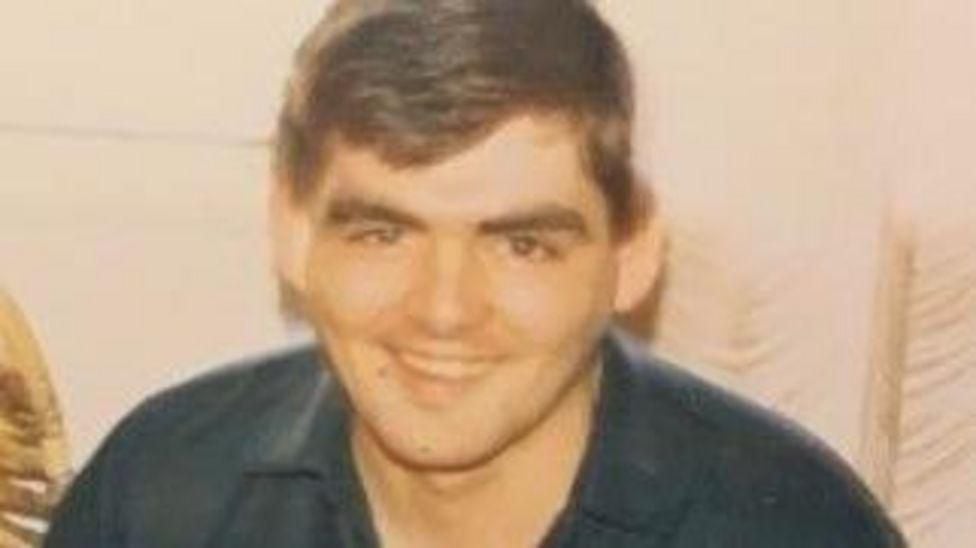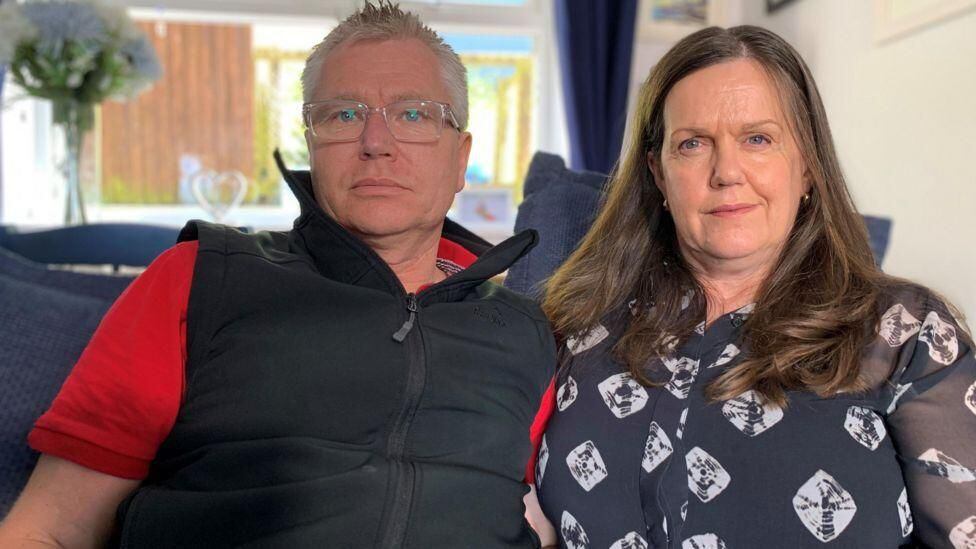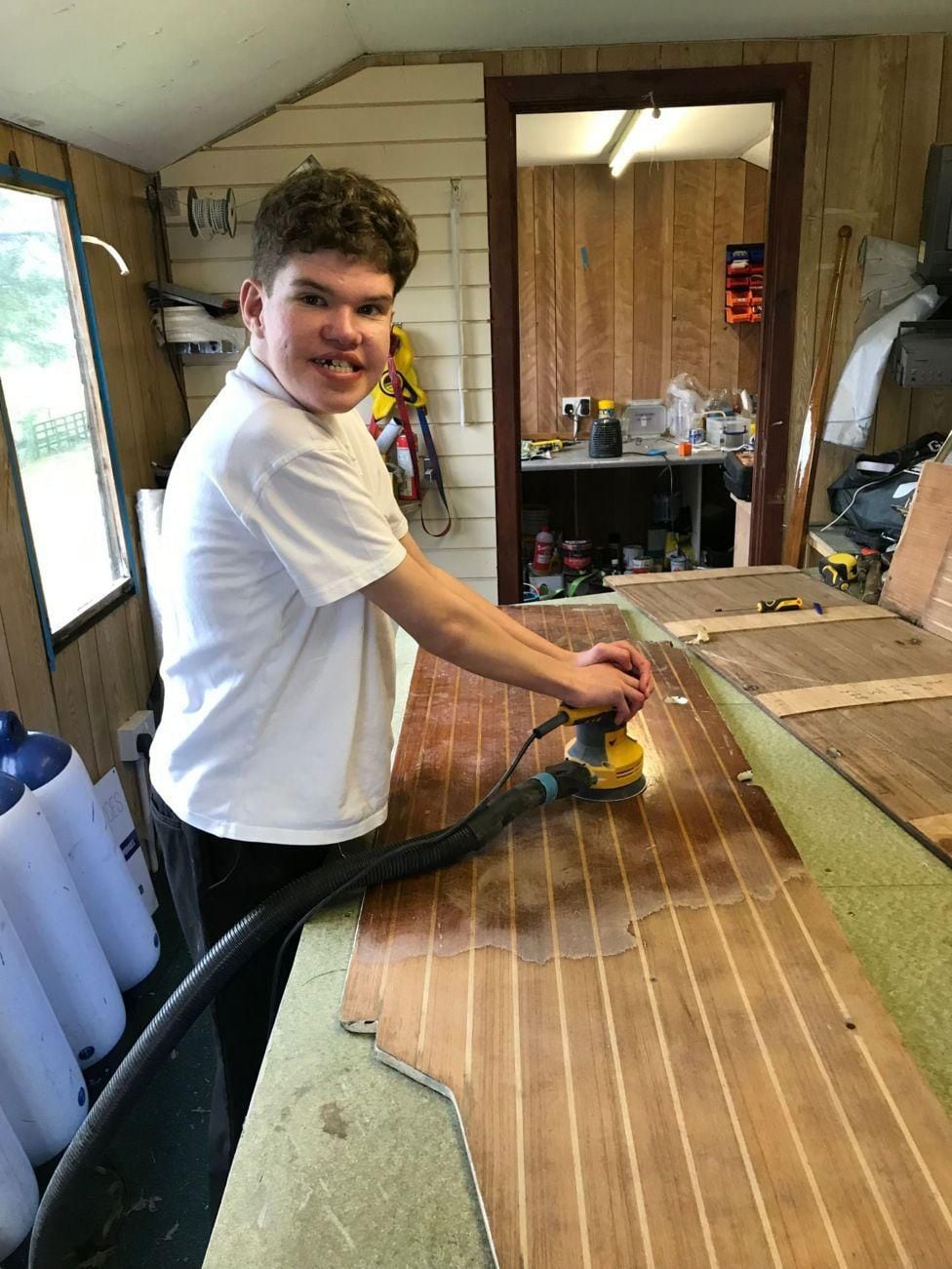Charles Esler spent more than 50 years living behind closed doors in a hospital, despite not suffering from any serious illness.
Charles, who has mild learning difficulties and epilepsy, was first admitted to hospital when he was 10 years old.
LOOK: The story of how terracotta warriors were discovered in China, one of the greatest archaeological finds in history
He told the BBC that He had spent “many birthdays” in hospitals and didn’t like being locked up without freedom.
His sister Margo says she fought for Charles to move to a place where he could be independent and last year, at the age of 62, the man finally got the keys to his own apartment for the first time.
“His family struggled for years to find a suitable place for him,” said David Fleming, of the charity Richmond Fellowship Scotland.
“Unfortunately, some people get caught up in the system.”
A BBC Scotland investigation found that hundreds of people with learning difficulties are still stuck in hospital or living hundreds of miles from their families.
This is despite decades of government policies that made it clear that everyone should leave long-term care facilities and move into their own homes.
Two and a half years ago, The Scottish Government has promised to move “the majority” of people into their own homes by March 2024..
However, new figures obtained by the BBC show that the number of people hospitalized has increased.
A request for information from authorities under the Freedom of Information Act found that the number of people with learning difficulties hospitalized has risen from 173 to 191 since last year.
General numbers from the new national register, which includes people who are away from homea, increased by 12%, from 1,243 to 1,398.

Charles’ caregivers say his case shows that everyone can be supported to live in the community.
Fleming said: “He was amazing during his transition and is now thriving and very independent.”
Charles, who grew up in Glasgow, says: “Now I can go out and go places, go to the little pub down the street and have lunch there.”
“I like fish and chips. I feel really good. I’ve never had freedom before.”
He says he loves sitting in his living room and watching James Bond films. He is learning to cook, garden and clean on his own.
Her sister Margo McKeever says who fought for years to get his brother a home of his own.
“Don’t think this is a fairytale story,” he said.
“This was not an overnight process. Many people were involved and it took almost 14 years to find the right place.
“Everyone should have someone who can make sure they don’t treat you like a number.”

Fraser Malcolm has lived in hospital for more than three years, despite agreeing he is ready to leave.
The 20-year-old, from North Ayrshire, Scotland, has speech problems and complex needs, but before going to hospital his parents say he has lived a full life.
He attended a special school, sailed regularly and went on vacation with his family and helped his father renovate a sailboat.
His parents said his biggest mistake was “asking for help.”
Fraser’s mother, Karen, says her son has gotten worse since being hospitalized and that the fear of being tied down in hospital “is eating away at the person he once was.”
She adds that she feels “completely outraged” that the number of people with learning difficulties has increased since ministers promised to get people home.
“It was a hard blow for our family and many other families I am now in contact with“, he said. “We feel harmed.”

Fraser’s family has prepared a specially designed room for him and wants him to return home, but they say he has deteriorated so much in hospital that he is afraid to leave his room.
Like many families, They had difficulty finding a suitable care package and accepting the hospital transition.
A spokesperson for the North Ayrshire Community Health and Social Care Authority said it would continue to work with Fraser and his family to get him discharged from hospital.
“There are ongoing challenges locally and across Scotland in the capacity, availability and range of community care options for people with complex support needs,” he said.
Separate freedom of information requests made by BBC Scotland to all of the country’s health boards revealed that more than 120 people with learning difficulties had been hospitalized for more than a year.
This includes 28 who were hospitalized for more than 10 years and four who have been hospitalized for more than 20 years.
Two years ago, the BBC discovered that people with learning difficulties were stuck in hospital.
Among the young people found, including Fraser Malcolm, all are still imprisoned, living behind closed doors in hospitals.
Kyle Gibbon is now 37 and has lived at Carstairs, the State Hospital, for 15 years.
Jamie is 26 and still lives at Woodlands View Hospital in Ayrshire and Arran. He has been there since he was 19 and is registered as a late discharger.
Louis Sainsbury is thriving at his Perthshire home after years in hospital.
Thousands of people with learning disabilities lived in long-stay hospitals before the 1990s, when he remembered that it was inhumane.
The Scottish Government published a report in 2000 which established the right of all people with learning difficulties to live in their own homes and communities.
Experts say it’s absolutely possible so that everyone can live in their own home with adequate support.

Sam Smith, director of C-Change Scotland, an organization that helps people with disabilities live at home, says: “We ended long-term hospital admissions more than 20 years ago in the belief that we knew people could live in the community.” .
The Scottish government says it has worked with local authorities to create a national register of people with learning disabilities in hospitals and hundreds of miles from home and has provided £20 million ($25 million) in funding to help transfer people to their own homes.
Social Care Minister Maree Todd told BBC Scotland: “We are absolutely determined to move forward on this issue. But as this information shows, it is difficult to resolve“.
“Legal responsibility lies with local authorities and I am working closely with local authorities to try to improve the situation.”
Source: Elcomercio
I am Jack Morton and I work in 24 News Recorder. I mostly cover world news and I have also authored 24 news recorder. I find this work highly interesting and it allows me to keep up with current events happening around the world.

:quality(75)/cloudfront-us-east-1.images.arcpublishing.com/elcomercio/5GUDEDTPDVAQ3ECKAGE6Z6XULI.jpg)


:quality(75)/cloudfront-us-east-1.images.arcpublishing.com/elcomercio/BUNML4TQNVHSBOBMY5FC3QEM2M.jpg)

:quality(75)/cloudfront-us-east-1.images.arcpublishing.com/elcomercio/FGNDNEX4V5AKXF6INLTN4FLZUQ.jpg)
